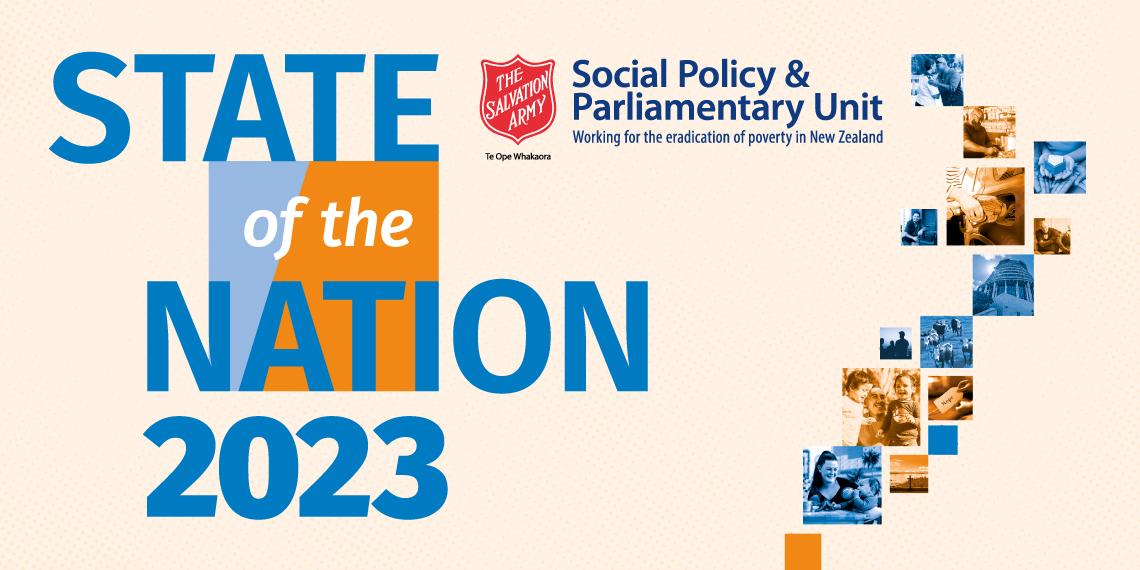You are here
State of the Nation 2023

Aotearoa continues to be buffeted by the health and economic impacts of a worldwide pandemic that has more recently been exacerbated by the impacts of a war in Ukraine. This year’s report has the theme: Costs… of Living | Nga Rourou Whakaiti. This theme acknowledges the very real pressures that are increasingly and significantly affecting people’s lives as inflation begins to bite and people struggle to feed their whānau, to find work and secure warm, dry and affordable shelter.
The theme draws attention to the immediate costs experienced by individuals, but also hints at a broader collective set of costs that society needs to take into account to support people to live fulfilled lives and avoid the very real social and economic costs of inequality.
This year’s report provides a snapshot of how we are doing as a nation. Are we seeing that all our people are fed, clothed, employed and housed? Are people and communities able to flourish?
Looking back at 2022, we can report some positive news:
- The social housing waiting list has continued to decline and building consents are up, showing some movement in addressing the wicked housing crisis.
- There have been high levels of employment and declining levels of unemployment.
- The continuing declines in levels of child poverty and hardship are a genuine achievement, particularly through the Covid-19 affected period, although poverty levels continue to be unacceptably high.
The impacts of policies, such as lifting the minimum wage, modest rises in benefits and high demand for labour resulting in some raised wages, have contributed to some of this positive news. We can only wonder at how much worse things might be without these.
On the negative side:
- Increasing levels of household indebtedness is a concern.
- Rising rents, lack of affordable housing and a focus on emergency housing continues to leave too many without warm, dry and secure housing.
- Backlogs in the justice system mean too many prisoners are on remand, causing injustice for those accused as well as victims.
- Significant wage and income inequity continues for women, Māori and Pasifika peoples.
As we look back, we see that some modest gains have been made in key areas that affect people’s wellbeing, but serious and entrenched levels of inequality, poverty and homelessness remain.
Looking to the future, we need to ensure that the costs of what some describe as an attempt to engineer a recession are not borne by the most marginalised people we work with—people on low incomes, Māori, Pasifika. Also, that the modest gains of the last few years are not lost, as more people on low incomes sink below the poverty line.
In an election year, it is our hope that we might see political leadership that will provide a vision to more comprehensively address the inequality that besets our nation, a vision that supports our communities to meet the ‘costs of living’.
‘I have come that they may have life and have it to the full’
—John 10:10
Download State of the Nation: Full report | Summary document